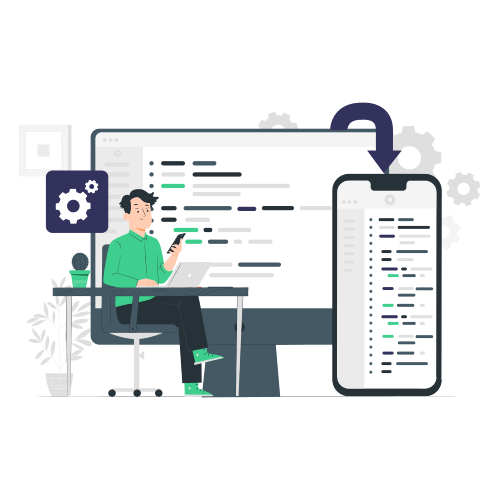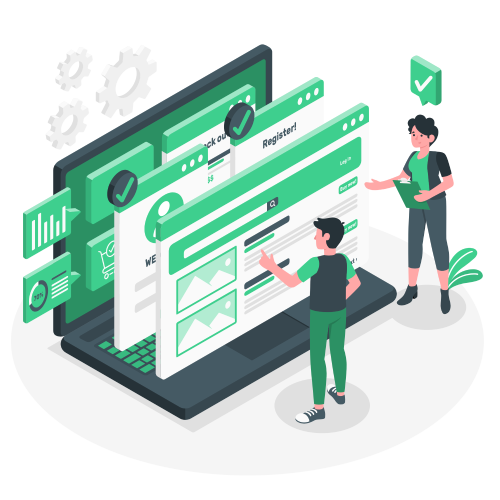ERP
ERP Software: An Essential Solution for SMEs

In the evolving BtoB world, SMEs are key players, bringing agility and innovation across sectors. To remain competitive, they must manage their operations, resources, and data effectively. This is where ERP systems become crucial, serving as vital tools for SMEs to stay ahead in a competitive landscape by enhancing their operational efficiency, decision-making, and overall management.
Over recent years, ERP software has surged in popularity, aiding SMEs in optimizing their internal processes, automating tasks, and enhancing decision-making capabilities. This article deeply explores the critical importance of ERP tools for SMEs, highlighting how these tailored technological solutions can fundamentally transform operational management. It showcases the potential of ERP systems to revolutionize how small and medium-sized enterprises operate, making a significant impact on their efficiency and strategic planning.
Benefits like data consolidation, department synchronization, supply chain management, and accounting support are detailed. The article also highlights the specific challenges and opportunities SMEs face when adopting ERP software, emphasizing how these systems evolve to meet the changing needs of small and medium-sized enterprises.
Discover how ERP software unleashes growth potential while enhancing operational efficiency, competitiveness, and agility in an ever-evolving business environment.
ERP Software Definition: What is an ERP?
To understand the meaning of ERP software, it’s known as Enterprise Resource Planning, which refers to the comprehensive planning of business resources. In French, it’s also called PGI, standing for Progiciel de Gestion Intégré.
An ERP refers to an integrated computerized system designed to facilitate the complete management of operations and capabilities within an organization. This tool centralizes and automates the collection, storage, processing, and distribution of essential data for the organization’s various functions, ranging from accounting and human resource management to supply chain management.
The ERP management software encompasses numerous functionalities aimed at overseeing all aspects of an organization’s operations. This includes inventory management, production management, customer relationship management (CRM), budgeting, quality services, and more. Essentially, every component that might be found within an organization can be managed through an ERP system, offering a comprehensive tool for centralized control over diverse organizational functions.
Therefore, ERP is a central solution commonly used by employees across all sectors. It allows everyone to perform their tasks and achieve their goals by providing easy access to the desired data.

How soes ERP software work?

The integrated management software is typically accessible on a connected device: a computer, tablet, or smartphone as needed. Additionally, several characteristics help define an ERP solution, such as:
- A single publisher
- Real-time updates of information across various modules
- The ability to track and analyze each piece of information
- Coverage across the entire IT structure of the company
- A single database
When considering how to use ERP software, it’s essential to recognize that it’s a comprehensive system deployed across multiple modules. Each module corresponds to a specific functionality, such as CRM, for example. Customer service might use an ERP solution with CRM for its needs but can also access other modules if desired. This modular approach provides employees broad access to a wide range of data and functionalities through the ERP software, enhancing overall operational efficiency and data integration across different organizational functions.
What is the purpose of an ERP Tool?
As previously mentioned, using ERP software spans the entire computer system of the company, allowing it to be deployed and accessible to all employees. It can thus be utilized for numerous tasks such as:
- Purchase management
- Sales and commercial management
- Accounting entries management
- Budget control
- Inventory management
- CRM and marketing management
- Production management
- Etc.
Beyond just storing data, ERP software facilitates tangible tasks that integrate into many daily processes. This is why ERP is relevant for all types of SMEs, as it meets the needs of various functions, regardless of industry. This adaptability ensures that ERP systems can support a wide range of business activities, making them indispensable tools for modern enterprises seeking to streamline their operations and enhance overall efficiency.

Why implement ERP software in your company?

Despite its cost, ERP software can address many issues within a company. It offers a unified tool and database for real-time updates accessible to all teams, simplifying processes and increasing autonomy. Task management is eased across departments, facilitating adherence to standards more smoothly.
A company aiming for efficiency and profitability would benefit greatly from engaging an ERP software integrator. They possess the expertise to smoothly deploy a Cloud-based ERP within the company and customize it to meet specific needs and expectations, facilitating a strategic alignment of technology with business goals.
What are the advantages of an ERP solution?
The ERP software aims to optimize and simplify all management processes, productivity, and resources. Thus, numerous advantages will be observed once the software is operational, such as:
- Access to more homogeneous information, enhancing daily collaboration and communication
- Time savings and increased productivity through better financial management or reduced delays
- Improved organization
- Easier strategic decision-making for the future
- Better cost control, especially through improved planning
This type of tool thus offers numerous benefits for the company, regardless of the chosen ERP software’s amortization period.

What Are the Challenges Associated with Implementing an ERP System?
Implementing an ERP can be a complex and demanding project for a company. Here are some of the most common challenges:
Complexity: ERP systems are integrated systems that cover numerous organizational aspects, from human resources management to accounting and logistics. The complexity of these functionalities can make implementation challenging to manage.
Customization: To fit the specific processes of the company, the software often needs to be customized. This can lead to additional costs and delays, as well as risks of compromising simplicity and compatibility with future updates.
Change Management: Implementing an ERP often means a significant change in how employees work. Resistance to change, the need for training, and the need to convince users of the new tool's utility are significant challenges.
Internal Coordination: It requires coordination among various departments and teams. Conflicts of interest, diverging priorities, and difficulties in gaining everyone's buy-in can slow down the process.
Costs: Implementation costs can be high, not just in terms of software licenses but also for customization, training, data migration, and ongoing maintenance.
Schedule Overruns: Projects may take longer than anticipated due to various issues such as delays in customization, project management errors, or technical difficulties.
Data Migration: Properly transferring existing data to the new ERP is a challenge in itself. The data must be clean, structured, and migrated without loss of integrity.
Operational Disruption: During implementation, the organization may experience operational disruptions, which can impact productivity and financial outcomes.
Maintaining Quality: Once the solution is in place, ensuring data quality and that processes are correctly followed requires ongoing monitoring.
Cloud ERP: The Future of ERP Software?
Cloud ERP is increasingly seen as the future of software due to its benefits and potential for businesses. Here’s why Cloud ERP is considered a promising trend for the future:

Accessibility and Flexibility: Cloud solutions are accessible via the Internet, meaning users can access them from anywhere, anytime, promoting remote work and mobility. This allows businesses to stay agile and responsive to changes.
Cost Reduction: Cloud eliminates the need for physical infrastructure and local servers, significantly reducing costs associated with purchasing, maintaining, and managing infrastructure. Maintenance and update costs are also included in subscriptions, avoiding high initial investments.
Simplified updates: Cloud ERP updates are managed by the provider, ensuring teams always have access to the latest features, security enhancements, and fixes. This eliminates the need for manually deploying complex updates.
Scalability: Cloud solutions can easily scale according to the changing needs of the business, whether to increase resources or add new functionalities. This allows for rapid adaptation to growth or market changes.
Enhanced Security: Providers implement advanced security measures to protect customer data. This includes regular data backups, access control management, and compliance with security standards.
Facilitated Integration: These solutions often offer predefined integrations with other Cloud applications, enhancing interoperability with other software used by the company.

Rapid Deployment: Compared to traditional ERP implementations, setting up a Cloud ERP is usually faster since it doesn't require complex hardware configurations.
Improved User Experience: The user interfaces are often user-friendly and intuitive, making it easier for users to adopt.
Simplified Update Management: Updates are managed by the provider, thus avoiding the complexity and risks often associated with local updates.
Analysis and Artificial Intelligence: Many Cloud ERPs incorporate advanced data analytics and artificial intelligence capabilities, enabling managers to make more informed decisions and leverage market trends.
How to Choose Your ERP Software?
Several criteria can be considered when choosing such a system. Defining a precise set of specifications is often the best way to select the offer that meets the needs of one’s company. In this way, one can opt for:
- Software suited to its activity, size, and specific needs
- Quality support and customer service
- A modern, adaptable, and ergonomic tool to support its evolution
Once the criteria are defined, it will be possible to request a quote to know the price of implementing ERP software or to conduct a demonstration of the solution to ensure that the chosen model meets the expectations of one’s organization.

Why Choose Axelor ERP Software for Your Business?

With Axelor, you have the option to choose a Low Code platform dedicated to business applications like ERP software, as well as CRM or BPM. We offer a versatile Open Source ERP solution tailored to our clients’ needs. All market ERP functionalities are integrated, enhanced by ergonomics and modularity!
Axelor’s ERP solution offers to optimize your time, reduce costs, and manage your entire business effortlessly with a simple tool designed for your activity. This solution specifically allows you to:
- Connect all your company’s data
- Provide comprehensive functional coverage
- Include CRM integration
- Offer a collaborative portal for clients and suppliers
- Feature a full web business application
Whether for services, industry, public sector, or distribution, our ERP software is among the most versatile on the market! If you’d like to learn more about our ERP solution, feel free to contact our teams. We can assess your needs and offer a personalized demonstration to explore our solution further!